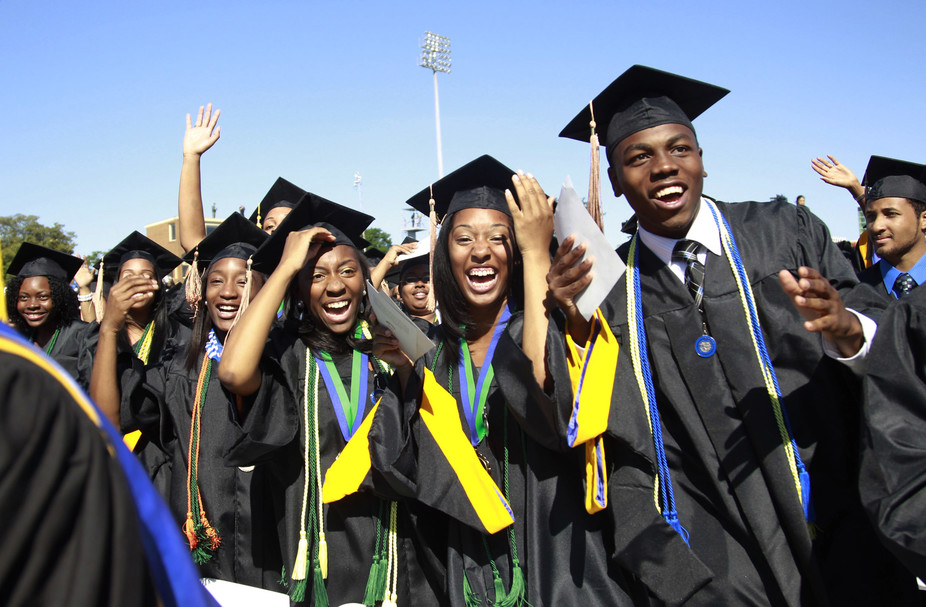Diverse Conversations: Current Issues in Higher Education
With each passing decade, colleges and universities are faced with the task of responding to the spirit of the times. Those that deal with these trends and issues proactively often receive great rewards. However, those that do not keep up with the times face an uncertain future and in extreme cases, failure. Recently, I spoke with Dr. Helen F. Giles-Gee to discuss some of the current issues in higher education and how colleges and universities should respond to them.
Dr. Helen F. Giles-Gee began her tenure as the 22nd president of University of the Sciences on July 16, 2012. A well-respected and nationally-known scholar, educator, and administrator, she brings more than 30 years of experience in higher education to the campus.
Q: What are the major challenges facing American colleges and universities?
A: American colleges and universities are facing many challenges. I’ll name just 10: (1) Diversifying revenue streams to adjust to government divestment in higher education; (2) Enrolling a more diverse college bound population, some of whom may be ill prepared for college-level work; (3) Informing the Reauthorization of the Higher Education Act, which impacts federal student aid (student affordability), fundraising opportunities because of expiring tax provisions and more; (4) Greater accountability at state and federal levels for student learning outcomes such as increasing retention and graduation rates and student academic achievement; (5) Increased competition with other colleges that are becoming entrepreneurial in their academic program development and/or are utilizing new ways to assess students’ prior learning now paid for using federal financial aid; (6) Addressing the new credentialing of competencies that may make the “credit hour” irrelevant; (7) Forecasting capital plant needs with a changing delivery market for higher education; (8) Maintaining good community relations when balancing the desire by some cities and towns for tax revenues from nonprofits; (9) Addressing risk and compliance issues associated with needs for additional security, greater internationalism and resulting visa needs, greater sensitivity to complaints of sexual harassment, whistleblowers, and other possible personnel issues; and (10) Supporting the K through 12 pipeline regarding student academic achievement by strengthening teacher education programs and their outcomes.
Q: In what areas do American colleges and universities need the most help?
A: With decreasing college bound populations, greater competition from an increased number of colleges and universities, and fewer government subsidies for financial aid, having tuition and fees as the predominant source of revenue is a recipe for disaster. Colleges with fewer than 4,000 students are especially fiscally vulnerable as they need the same core operations as larger colleges unless they possess very great endowments with payouts that contribute high percentages to operations. Small institutions that still try to “go it alone” without considering joining consortia or merging with another institution may see their coffers empty sooner rather than later. Some institutions may need assistance in considering appropriate strategies to diversify their revenues and contain costs.
Q: What is the current enrollment of University of the Sciences? What is a realistic projection of enrollment over the next five years?
A: University of the Sciences’ current enrollment is about 2,800 students. With a mission of educating students for healthcare professions, sciences and mathematics, and management and health policy, USciences aims to stay small in size and focused in its program offerings. The majority of our programs are in fields that are highly desirable by employers with 94% of students graduating in 2012 having jobs or admitted into graduate programs within six months of graduation. We currently provide three online full programs in biomedical writing, and expect to see enrollment growth occurring in new specialized online programs that are in sync with our mission.
Q: What is the approach to recruiting new students? What challenges do you face in attracting students to the school?
A: We are increasingly informing new students about our value and distinctiveness. Our strengths include: a small faculty to student ratio; an urban location amidst other great universities; collaborations with great universities and research institutes on research and academic programs; student/faculty research opportunities that result in presentations and/or publications; great possibility for graduate work; clinical practice in sites across the country; faculty who are esteemed in their fields; reputation for innovation and entrepreneurship as documented by graduates like Eli Lilly, Robert L. McNeil Jr., and others.
We are also increasing our articulations with surrounding schools and community colleges. As Philadelphia College of Pharmacy, we were the first college of pharmacy in North America. When academic programs expanded to include degrees in science as well as professional doctorates in occupational therapy and physical therapy, our name changed to Philadelphia College of Pharmacy and Sciences and later to University of the Sciences. Name recognition has been a challenge that we are overcoming with greater media exposure and publicizing the positive outcomes of a USciences education.
Q: What is the graduation rate at the University of the Sciences now?
A: The six year graduation rate for the 2006 cohort is 74%. We are instituting new retention efforts and expect to see this percentage increase.
Q: Do you have any parting messages for our readers, many of whom are our current and future presidents?
A: This era calls for presidents who can lead institutions to develop tactics that effectively address new problems and who can educate boards to a changing higher education landscape. We will need to develop collaborative models within our institutions as well as with external partners. I am both humbled and challenged by the many new issues we face while knowing that when we succeed at improving higher education our students and our world will be the better for it.
Well, that concludes my interview with President Giles-Gee. I would like to thank her for taking time out of her busy schedule to speak with me.




